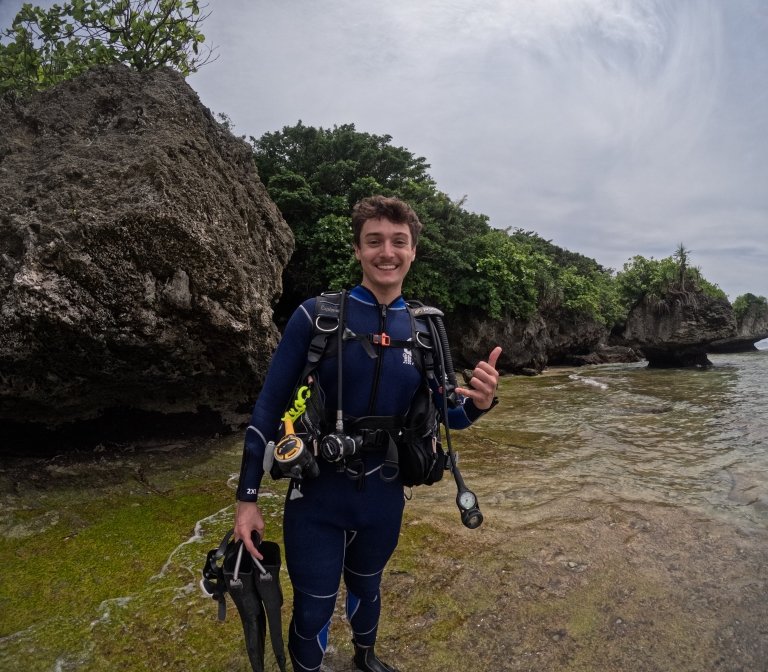Immersion
A Norwich cadet travels to Taiwan and dives into language and culture as a recipient of the Critical Language Scholarship.
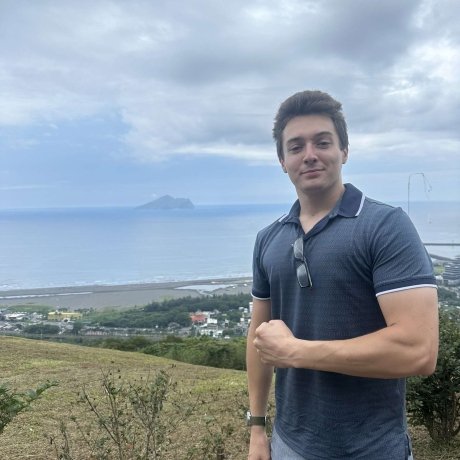
“This wasn’t my first time coming to Taiwan, it was actually my second,” says Cadet David Hamilton ’27, who previously participated in Project Global Officer. “We studied Mandarin for about two months and after that I was incredibly interested to do more. I looked into all the different programs that I could apply for, and I found the Critical Language Scholarship to be a very similar program.”
The Department of State sponsors the scholarship and sends students on an intensive and immersive trip; Hamilton decided to continue his studies in Mandarin Chinese and is the first undergraduate student at Norwich to receive this honor. Students have class every day for five hours over the course of eight weeks and are encouraged to only rely on the language they are learning. “It can get pretty tedious at times, but if you’re dedicated to learning the language, then that’s what you have to do to increase your proficiency,” he says.
Luckily, he has a strong background in Mandarin Chinese. “I was fortunate enough to have a high school that offered it — I know a lot of schools don’t,” says Hamilton, adding that his sister took it prior to him and encouraged him to study it. “I’ve loved my time studying Chinese. I took AP Chinese when I was a senior and I was placed in the most advanced class at Norwich my freshman year. And what does that mean? There was nothing left after that, so if I wanted to keep improving my language skills I had to go somewhere.”
Applying for the Critical Language Scholarship involved not only his language skills — which actually is not he strictest requirement — but a holistic consideration on a personal level. “They need people from all levels, and if you’re a beginner you still have a chance,” says Hamilton. “If you can demonstrate how you exemplify the qualities in the mission statement that they line out very clearly, and you articulate that, I think you have a really good chance.”
“There were people that I studied with that had never really seen a Chinese character before and had never really been out of the United States,” he says. “I think it’s really eye-opening to have the opportunity to do that. I know for me, personally, I would never have the means to travel like I have in the past few years had it not been for such amazing scholarships and programs.”
Immersing himself in the culture surrounding the language in Taiwan has allowed Hamilton a chance to expand his worldview. “It opens your eyes and gives you a new perspective,” he says. “I think that a lot of people that don’t travel out of the United States can be a little close-minded until experiencing a culture for themselves. It’s hard to understand what it’s like and easy to apply stereotypes.”
Though this is his second extended trip in Taiwan, Hamilton is still learning new things by immersing himself in the culture and language. “I’ve learned the most Chinese when I would get out at night and talk to locals, asking for recommendations. The culture here is extremely friendly and open to foreigners,” he says. “I can strike up a conversation with just about anyone and they’re willing to indulge me. I think the impact on me in that regard is that it also makes me more open to talking to other people, and makes me more interested in other people’s lives, cultures, and histories.”
Hamilton recognizes the value of pairing culture and language, and how the pair are intertwined. While he and other American students certainly take standard American history, he has valued gaining the perspective from others on their own country’s historical, social, or political environments. “Personally, I may not have any sort of opinion because I might not know anything about it, but it’s really good to get an idea of how the people think,” he says. “You can go back to the United States and share that. Maybe we have a problem that they don’t have; maybe we could try something like they have.”
“The biggest lesson I learned was mostly about my attitude,” says Hamilton. “I learned that inability causes frustration, and frustration discourages process.” The process of learning a language is never linear, and striving for fluency can often cause frustration due to the constant instances of learning more about the language and the culture it stems from. “You fail every single day and never get the feeling of, ‘I’m fluent now.’ You never hit a day when you realize you’re fully fluent. It’s a constant journey and there is no destination,” he says. “Changing my mindset and my views on where I wanted to go with the language really helped me progress. I thought that maybe a language score on a test would give me some validation, but still, if I watch the news in Chinese, I might not understand what’s going on.”
Hamilton highlights the political tension between The People’s Republic of China and The Republic of China (Taiwan) as one of the most prominent ways this plays out in his day-to-day life, especially considering that most schools in America teach Mandarin Chinese with a Beijing accent and a focus on The People’s Republic of China. “It could be something as simple as asking about food in the supermarket,” he says. “You could ask where a potato is and the way you say it is how they would say it in China, and they might correct you and say, ‘This is how Taiwanese people say it.’ That’s another political thing that you just learned; if they’re willing to correct you on it, there’s a little bit of patriotism there. I think there’s something to be said for that.”
“One of my favorite memories was when I was visiting another Norwich student’s military academy in Taiwan, his name is Kun-Yi Hong. He attends Norwich and he’s going to be there all four years, but this is where he’s going to commission through Norwich,” says Hamilton. “I just so happened to be there on the 100th anniversary of this military academy. The president of Taiwan was there, and he gave a speech. It was such an honor to be included in that, and such a coincidence that I was there. I’m grateful that he reached out to me.”
Hamilton will commission into the United States Navy upon his graduation from Norwich. “I know that Chinese probably won’t be of much use my first couple of years in service, with all of the initial trainings that I’m going to have to do in my journey to get qualified,” he says. “But later on down the road, there’s a position called a foreign area officer. It’s a very niche position in all of the branches, but you can be assigned as a naval attaché in another country.”
He has met attachés on various occasions and has been encouraged by the reviews of the position that he has heard and says that “middleman” describes the position well. “I visited the Baltics earlier in May as part of the Olmsted study, and we met attachés from every branch and all the U.S. embassies that we met with. They told us that their job is important because they have to be the communicator, considering how the ambassador represents the United States.”
His continued experiential learning highlights his commitment to service and his desire to be the best version of himself that is possible. Immersing himself in the language and culture it stems from has developed a deeper sense of understanding not only on an academic level, but on a human level as well. He intends to continue using his education not only for his benefit, but with the goal of benefiting his service. “You take a language pledge at the very beginning of the program that acknowledges that the American taxpayers are paying for this, so they want the best results,” he says. “I’m going to do my best to speak Chinese the entire time I’m here.”
Read More
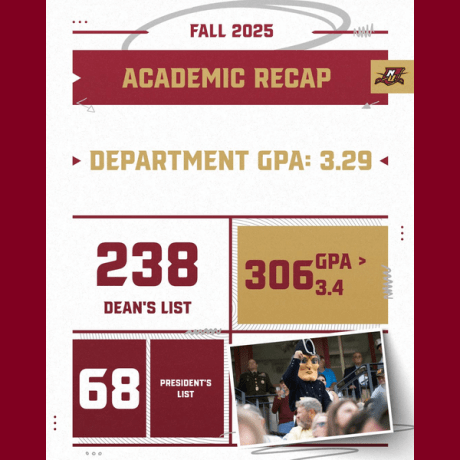
Celebrating Academic Excellence
By Norwich Athletic Communications
Norwich athletics celebrates the student-athletes who have earned recognition in the classroom.
2 min read
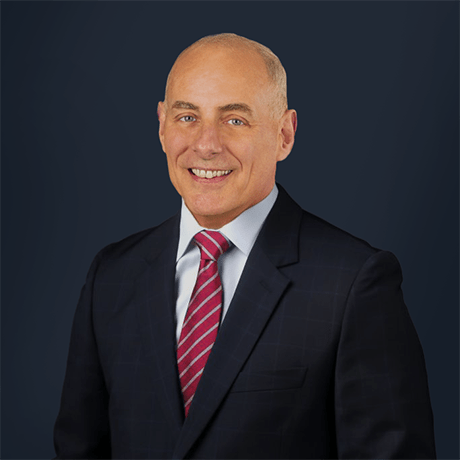
Former Marine general who was Trump chief of staff to speak at Norwich
By Beth McDermott
Link takes reader to an external article.
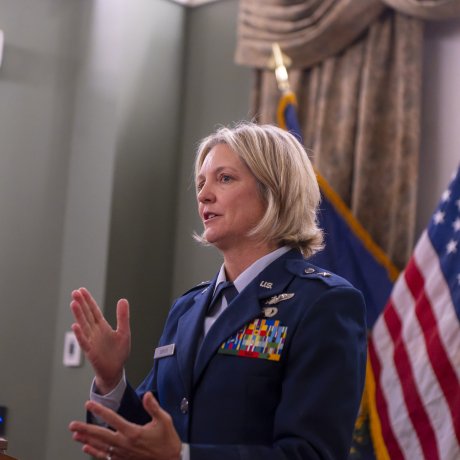
Lessons in Leadership
By Zack Bennett
A general officer visits the Women Kicking Glass Student Club to share her insights on success.
6 min read

